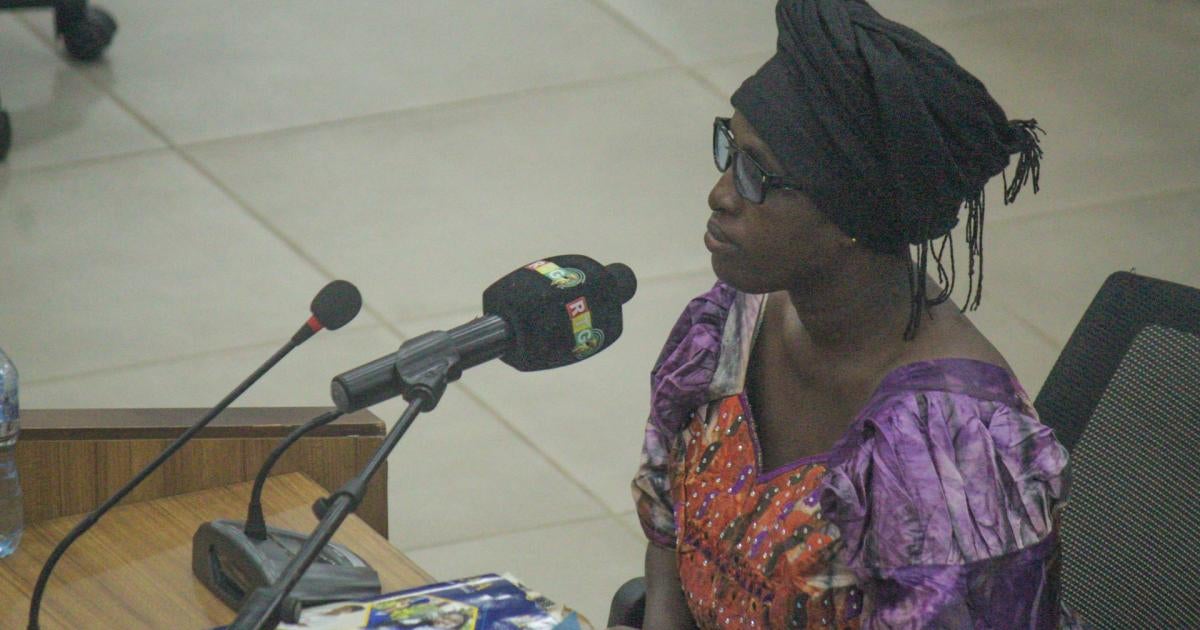Rape Survivor Testifies Publicly in Guinea Massacre Trial

“I prefer to come in public to testify, in front of my nation.” With those words, rejecting the option of a closed session, Fatoumata Barry took the stand this March in Guinea and shared with the world the horrors that she – and hundreds of others – experienced on September 28, 2009. Her testimony was an unprecedented moment in an unprecedented domestic trial to hold perpetrators of atrocities to account. On that day, thousands of Guineans had gathered for a pro-democracy rally against the ruling military junta in a stadium in Conakry, the capital, when security forces opened fire.
They killed more than 150 people and committed brutal sexual violence against more than 100 women in and around the stadium. Barry testified that police and gendarmes struck her, took out a knife and tore her clothing off, and then repeatedly hit her with a piece of wood. “You see the policeman here ... the thing he’s carrying here, that’s what he inserted [into me],” she said, referring to a photo she brought to court. “We are women, we thought that our rights were respected in this country.” Survivors and civil society groups have long campaigned for justice for the massacre, sexual violence, and other abuses committed at the stadium. Though 13 years have passed, Barry said the day still haunts her: “From then until I am sitting here now, when I go to sleep at night, that’s what I see first.” After the trial’s first phase ended in February, victims began testifying, those who suffered sexual violence often in closed session.
There is profound stigma attached to sexual violence in Guinea’s largely conservative society.
There was a major problem when the court breached the anonymity of the first sexual violence survivor to testify because a judge requested she appear while cameras rolled before deciding on her request for a closed session.
The practice has not been repeated. Barry left Guinea after the massacre, and testified to the crucial importance of accountability: “I have always asked for justice.... What I saw at the stadium, as long as justice has not been done for that, I cannot return.” For justice to be realized, the trial should progress without interference, with judicial independence, respect for the accused’s rights, and meaningful participation of the victims.
Read the full article at the original website
References:
- https://www.youtube.com/watch?v=Icr015E_N2A
- https://www.aljazeera.com/news/2022/10/24/trial-gives-guinea-stadium-massacre-survivors-hope-for-justice
- https://www.hrw.org/report/2009/12/17/bloody-monday/september-28-massacre-and-rapes-security-forces-guinea
- https://www.hrw.org/news/2019/09/25/guinea-decade-later-no-justice-massacre
- https://www.hrw.org/news/2023/02/16/guinea-stadium-massacre-trial-marches
- https://www.rfi.fr/fr/afrique/20230215-au-proc%C3%A8s-du-28-septembre-en-guin%C3%A9e-l-anonymat-bris%C3%A9-d-une-victime
